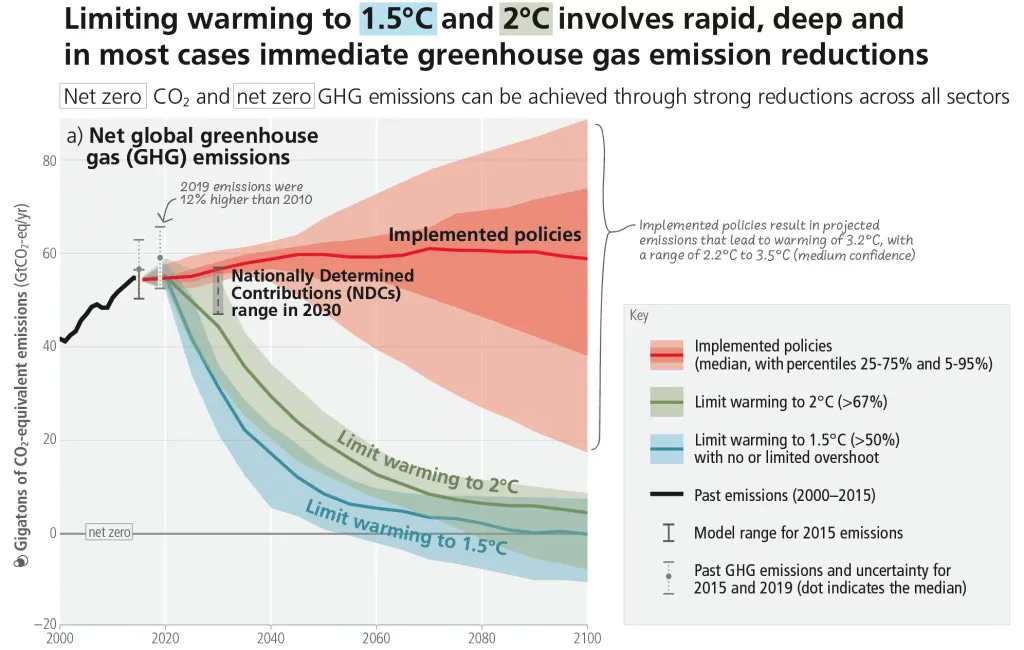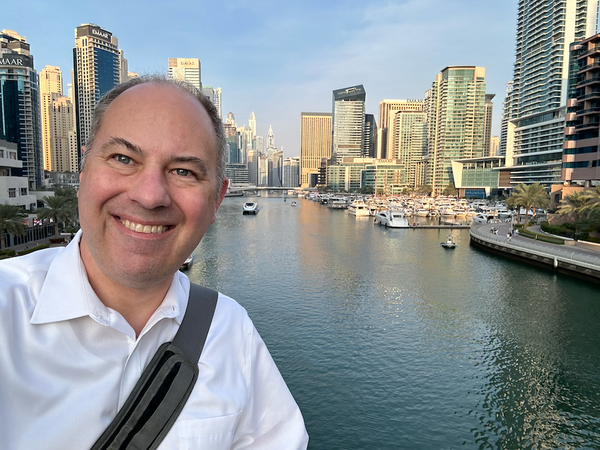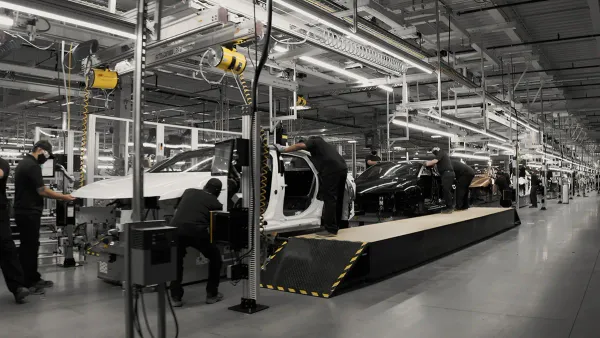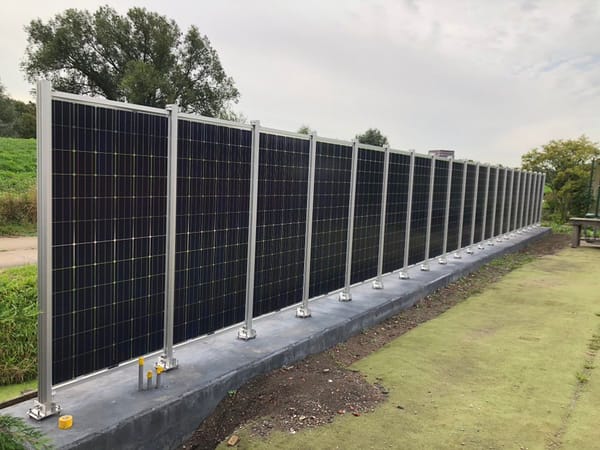Taking a realist’s perspective to Dubai
Welcome to the many new folks who signed up this week! This evening I jump on my plane to Dubai. This trip is in large part possible due to the support of an important group of people. Some supported my kickstarter for this trip, some helped me get credentials, and some provided key advice to make this thing happen. Thank you to each of the following:
Ryan Blitstein, Charlene Carle, Susan Carle, Eric Davis, Hugh Delios, Mick Dumke, Clara Fajardo, Susanna Fajardo, Robert Fajardo, Heather Foster, Dave Fript, Greg Fung, Eric Glatstein, Andrew Huff, Rob Katz, Josh Kilroy, Heather Way Kitzes, Mike Kreloff, Matt Martin, Tonia Nelson, Ken Paulman, Dave Presser, Cole Preston, Greg Foster Rice, Bryan Schatz, Robert Secbanc, David Seidman, Sherry Skalko, Scott Smith and my wonderful and ever tolerant wife, Teresa Fourcher.
Also, this newsletter grows mostly with your support. Please consider forwarding this email to a friend (“I just had to share this awesome newsletter!”) or repost one of my social media posts Twitter / Threads / Facebook / LinkedIn. More readers helps!
One more newsletter from the U.S. My next report will be from COP28.
-Mike

The deep intractability of fixing climate change requires serious thought on cynicism.
There are three ways people approach politics: as an innocent, a cynic, or a realist. In the course of my career, first actually working in politics and then later reporting on it, I’ve learned that these are actually levels of mastery, and it is possible to be multiple levels at once, depending on the circumstances you’re in at the moment.
Innocence is where everyone begins with every issue. One’s understanding of a particular issue or circumstance does not necessarily translate to others. For instance, you may have a deep understanding of your city’s politics, but be a complete innocent about the realities of another city’s. You can also be aware of your innocence, or not.
Cynicism arrives when you obtain a deeper understanding of the challenges and players in a political situation. This is almost always overwhelming, causing one to believe that little can actually be achieved. Cynicism is a defensive posture: Nothing can be achieved, and thus one dismisses the possibility of good outcomes. This attitude is reassuring to the individual, but ultimately defeatist and actually repellant to others over time. The intractability of a problem is reinforcing for a cynic, and can create a self-defeating doom loop.
Realism is only possible for those who have consciously worked past cynicism in a political situation to achieve some level of success. As a result, a realist is able to view challenges and opportunities equally and understand that sometimes they are the same. Realism is a practiced mode of thinking, since on occasion circumstances may be so bad that cynicism seems appealing. Consistently working to practice realism can help one move quickly from innocence to realism in new situations.
People who regularly practice realism can become self-evidently wise. They tend to have a different frame of reference for problem solving that allows others to proceed in an unanticipated way, clearing aside problems that once seem intractable, but are instead revealed as irrelevant.
I have been thinking about these ways of approaching politics as I worked to understand climate change negotiations. Of course I am an innocent when it comes to climate politics. My knowledge of the process is limited, I’ve never attended a COP before, and many times the expanse of issues is so wide, I am overwhelmed by their complexity.
When it comes to fixing climate change it’s easy to spot the cynics. And the daunting truth of how poorly humankind has addressed the warming of our planet actually makes cynicism a rational response. Particularly for people who have been doing the diligent work of advocacy, cynicism runs rampant.
One cynical perspective is that international climate negotiations don’t have an impact: because there are no concrete agreements, no major movements, nothing is really achieved.
A few weeks ago I wrote about one former U.S. negotiator I spoke to who called the climate negotiations “a pledge drive”, where countries line up to make promises they never intend to keep.
Another concern is that the $100 billion annual Loss and Damages plan needs to be committed to immediately by wealthy countries at COP28. Without that commitment, developing countries are arguing, we’re proving nothing of substance can really be done, and the rich, big emissions countries are just blowing smoke.
Finally, many activists argue that one of the top issues of this meeting is about setting a fossil fuel “phase-out” versus a “phase-down”, where the latter option is an obfuscation of what really needs to be done, which is set a day when nobody is going to use fossil fuels any more. According to some activists, if COP28 fails to set a phase-out date, it will have failed, and we’re doomed to boiling our planet.
These are all cynical perspectives: You must do this thing to avoid disaster, nothing else has any value. Instead, I’m attempting to view the negotiations as a series of gradations: Maybe you can’t achieve a desired result, but is it possible to achieve something slightly less than the desired result? This will be my guiding perspective in Dubai.
The big issues on deck
Coming into COP28, there is a stack of issues that negotiators will be pressured to act on, under the threat that without action, the meeting will be judged a failure. Perhaps you’ve read elsewhere, that COP28 is in danger of failure because one or more of the following won’t be accomplished:
- Financing the Loss and Damage Fund;
- Agreeing to triple renewable power by 2030;
- Establishing carbon credit trading rules;
- Set a fossil fuel use end date;
- Make methane emission reduction pledges – by China, U.S., and various national oil companies;
- Pledge to end new coal plant construction;
- Create solutions for developing country green energy financing; and
- Set a location for COP29.
For the sake of trying not to slip into cynicism, I choose to view the failure/not failure perspective as narrow.
During a recent briefing from the Center of Strategic and International Studies, Dr. Joseph Majkut put a specific focus on COP28: The gap between today and staying below 1.5 degrees Centigrade of warming is 24 gigatons of CO2 per year. The Inflation Reduction Act gets us about half a gigaton. “So the gap globally between what we expect to see out of the current [emissions] and the climate targets that the world has set for itself is somewhere between 20 and 40 IRAs,” said Dr. Majkut. Thus, the question to pay attention to at this meeting is, how much emissions will each of the commitments made at COP28 abate?
A realist perspective could focus not on if “go or no go” commitments are made, but rather, what are the actual changes made? It seems that a number of significant emissions reductions could be achieved, like ending new coal construction, tripling renewables, and methane emissions cuts by national oil companies. How much will that add up to? We’ll likely find out this week.
Missing big names
This week the major emitter nations announced their plans for attendance. European Commission President Ursula von der Leyden, a major climate proponent, will attend. As will Indian Prime Minister Narendra Modi. But U.S. President Joe Biden will not attend, and neither will not Chinese General Secretary Xi Jinping. Although China is sending Vice Premier Ding Xuexiang, which is kind of like sending the Deputy Vice President.
In their place King Charles III will give the opening speech, and Pope Francis is expected to roam the halls during the first week of meetings. Their moral support is uplifting, but without the presence of the biggest emitters, it’s hard to see how much lifting the King and Pontiff will be able to do.
This suggests the major country negotiators aren’t expecting any big announcements their leaders can smile and shake hands for. Although plans change – leaders have been known to fly in for COP meetings for last minute breakthroughs – it seems to be one more indication that COP28 will not bring the big changes climate advocates are hoping for.
Whether 1.5°C is alive
Because the meeting will include a report from the Global Stocktake, an assessment of where we stand on warming targets, we should also expect a great deal of discussion about the state of whether or not negotiators will commit to enough emissions cuts to stay below 1.5°C of warming. Considering that a couple weeks ago we actually rose above 2°C for one day, this seems to be a foregone conclusion.
Also in the CSIS briefing I attended last week, David Victor, a Senior Associate at the think tank, stated the boldest terms I have yet to hear from a climate expert: “One point five (degrees) has never been alive. That patient has been dead and dead forever,” he said. “1.5 [degrees] is not a feasible goal anymore. Two [degrees] was never a feasible goal, and so the stocktake will have this kind of almost theatrical discussion about how we need to do more and everyone will agree collectively we need to do more because no country individually is responsible for doing more according to that schedule.”
Victor’s assessment is bleak, considering the damage this level of warming will do to the world, but from a political and negotiations perspective, it seems realistic. Since so many emissions cuts are still needed to get below 1.5°C, and major emitters are not coming to the meeting with plans for big cuts, this meeting will likely result in a reorientation to 2°C – and lots of upset people at the meeting’s conclusion.
The likely outcome
Predicting how two weeks of negotiations will go is difficult. For instance, it was a last minute surprise last year that the Loss and Damage Fund framework was approved, a major breakthrough for developing countries. It is possible we will see some other significant agreement. As it becomes clearer that 1.5°C is dead, major emitters may be pressured into acting to save face. Perhaps this will come in the form of methane emissions cuts or a freeze on new coal plants. What we will not see is the U.S. committing to a funding target or specific emissions targets, since everything the U.S. agrees to has to be ratified by a Senate that has never expressed interest in supporting climate goals.
Other Things Happened
- US oil and gas production set to break record in 2023. The U.S. is the world’s biggest oil and gas producer. Yes, bigger than Saudi Arabia.
- 100 multinational companies call for an end to fossil fuel subsidies.
- UAE has used COP28 to advance oil and gas deals
- France, US to propose ban on private finance to coal-fired plants at COP28
- The decreasing cost of, and rapid growth of renewables is far outpacing predictions.
You made it to the bottom! I shared this with paid subscribers yesterday, but the Dubai Police Department’s COP28 video game is truly bonkers – and maybe a scheme to gather tracking information. iOS / Android
Previous Overviews of leading COP28 issues
- The four major issues shaping up COP28, plus one more
- Why we’re talking about abatement instead of fossil fuel phase out
- Developing country finances are now a top climate negotiating point
- How Global Stocktake results and carbon capture will play into negotiations
- Green energy financing, where will it come from?
- Concerns surrounding the COP28 president





